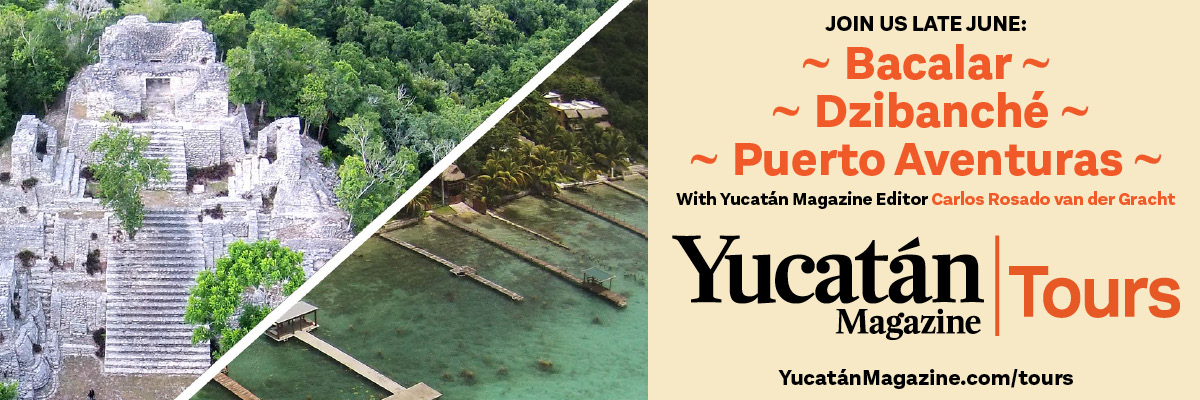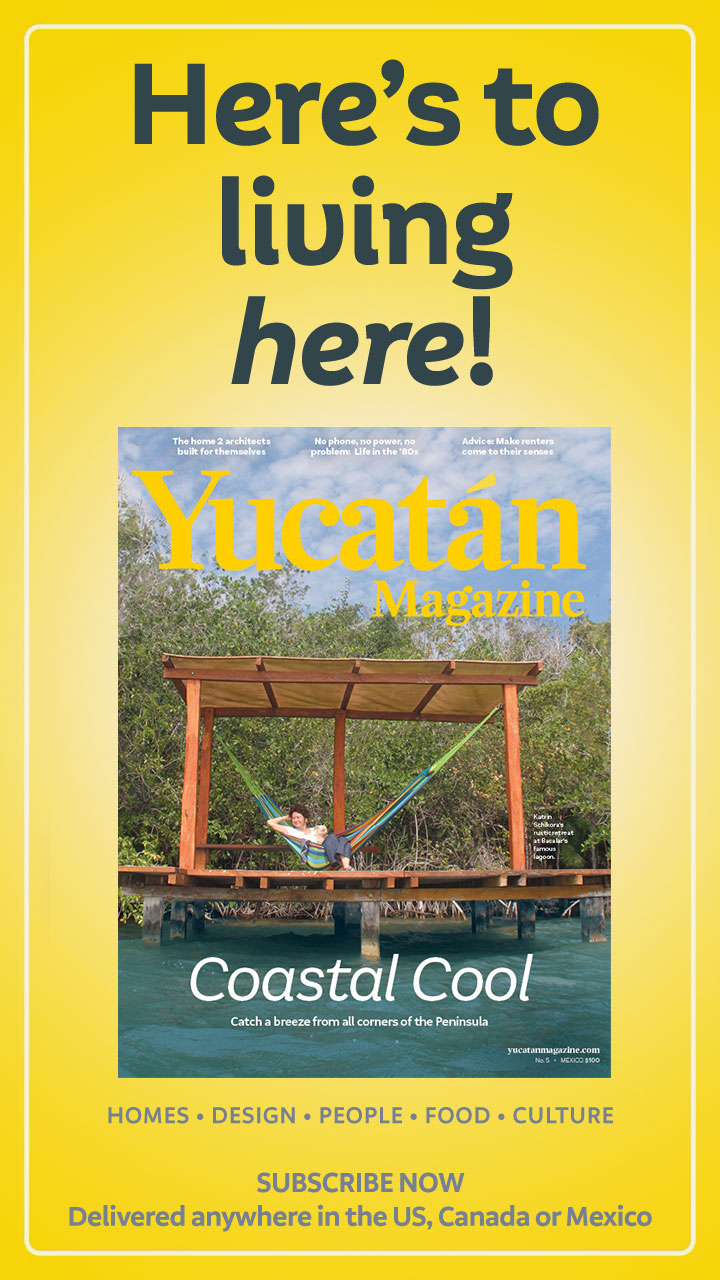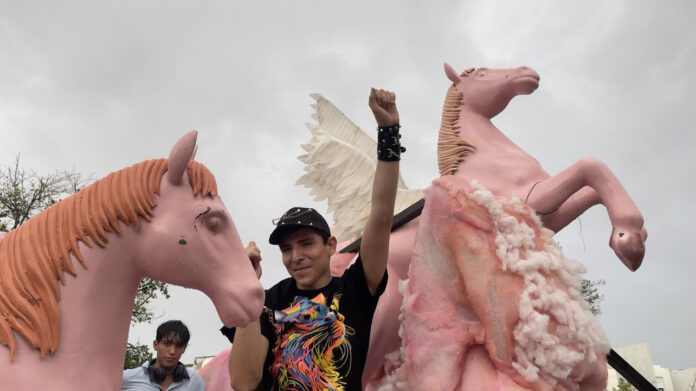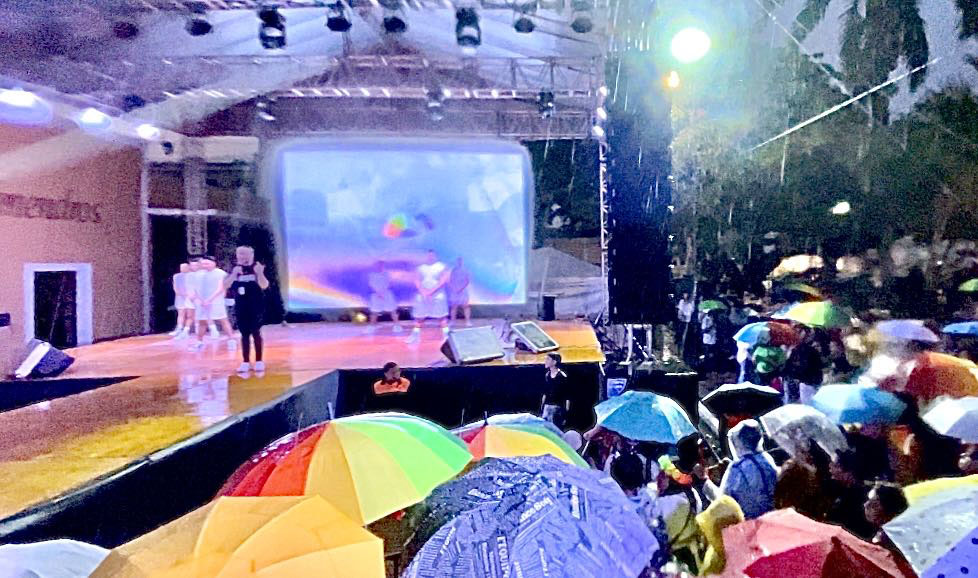
You don’t put on your best drag and parade down the Paseo without being resilient.
Marchers commemorating 2024 Mérida Pride meant it when they said “rain or shine.” A very soggy 22nd LGBTQ+ celebration hung in there despite intense downpours and flooding. At times, paradegoers were trudging through ankle-deep water. Few seemed to care.
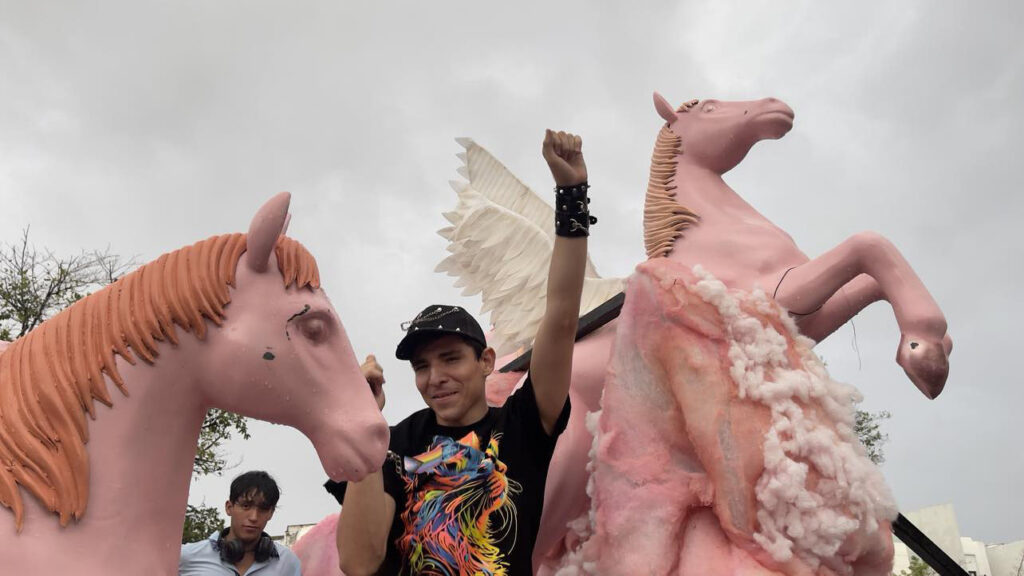
Floats and brigades started at the Monumento a la Patria and headed south down the Paseo de Montejo, where cars and buses were rerouted. With the Plaza Grande under renovation, the parade culminated where the first rallies began in 2002 — at Parque de la Mejorada. Entertainment went on as planned for an audience shielded by a sea of umbrellas.
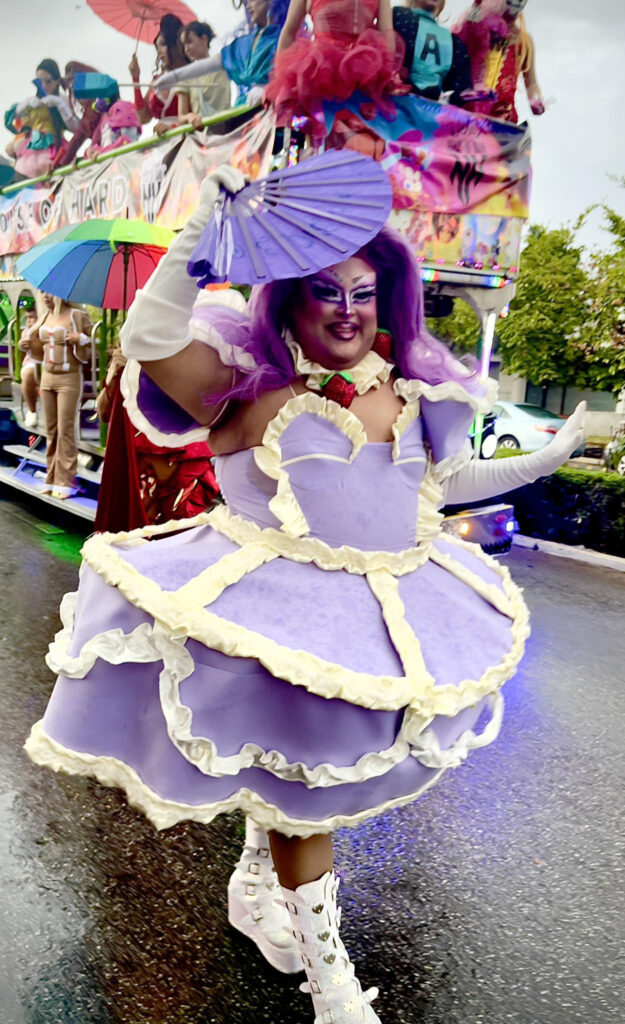
Gay pride was always a show of resilience. The history of Gay Pride marches in Mexico is a captivating narrative of activism, resilience, and the ongoing struggle for LGBTQ+ rights.
Rooted in the leftist movements of the 1970s, the first Pride events in Mexico were intertwined with broader social and political struggles.
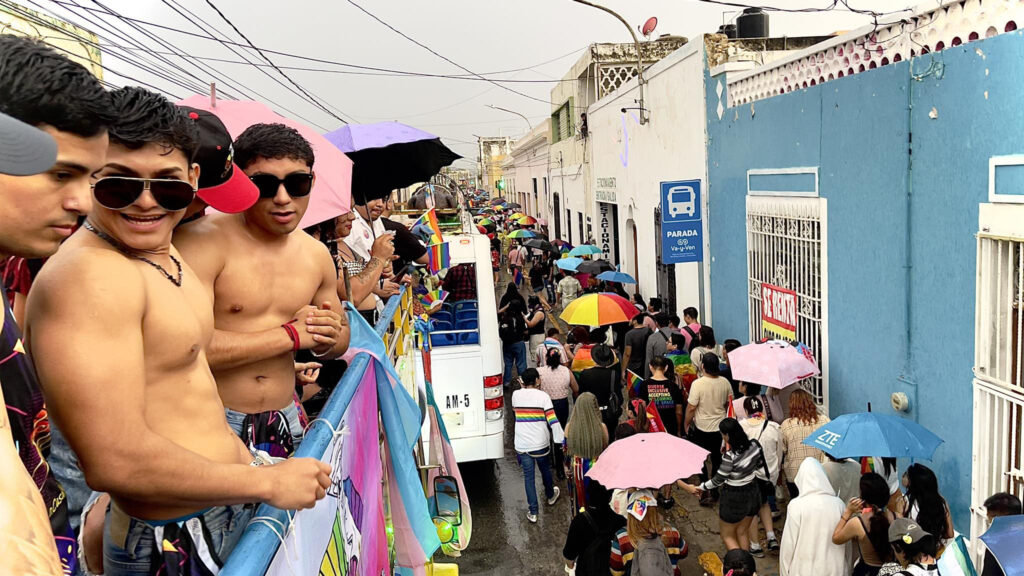
Early Activism and the First Marches
The inaugural LGBTQ+ march in Mexico took place in 1978, not as a standalone Pride event but as part of a demonstration commemorating the Cuban Revolution. This early act of visibility was organized by the Frente Homosexual de Acción Revolucionaria (FHAR), signaling the growing presence of LGBTQ+ voices within leftist circles.
In 1979, Mexico City held its first official marcha de orgullo homosexual“(gay pride march), inspired by the Stonewall Uprising in New York City a decade earlier. This landmark event, organized by a coalition of LGBTQ+ groups, marked a pivotal moment in the fight for visibility and equality.
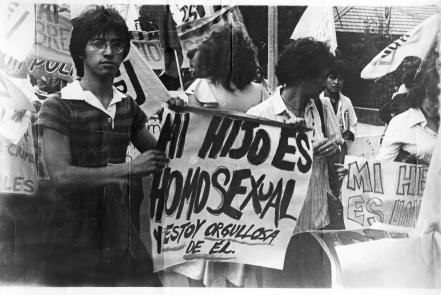
A 1978 march commemorating the brutal repression of the 1968 student movement in Mexico City became an unexpected catalyst for the burgeoning LGBTQ+ rights movement. Among the diverse groups participating in the demonstration were the Frente Homosexual de Acción Revolucionaria, a revolutionary gay rights organization; and Oikabeth, a pioneering lesbian-feminist collective.
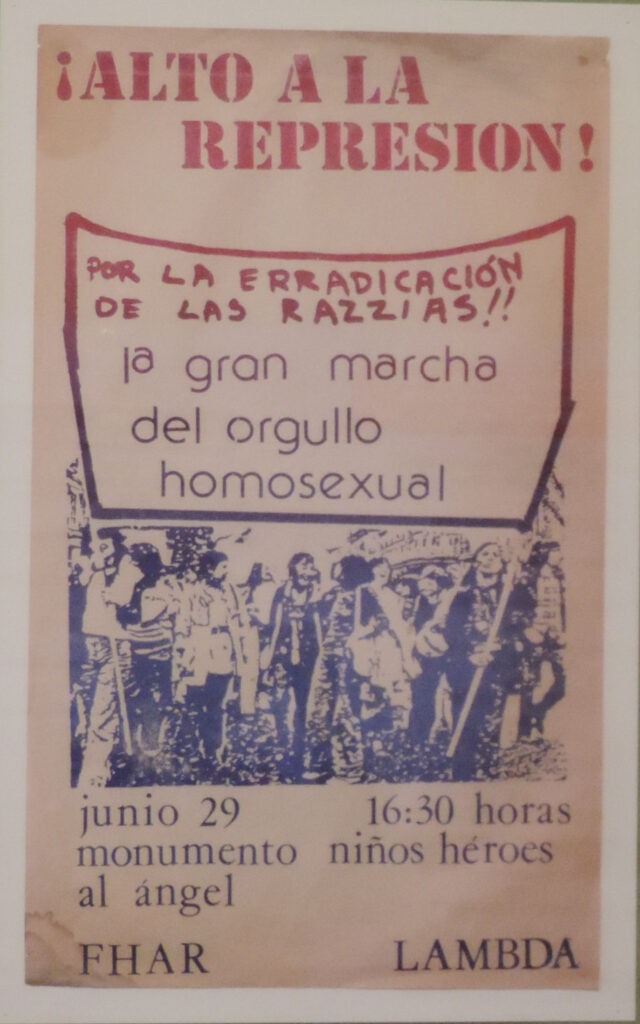
This historic moment, captured in a powerful photograph from the Fondo Hermanos Mayo archive at the Archivo General de la Nación, showcases the growing visibility and political engagement of queer activists in Mexico. It marks a pivotal juncture in the struggle for LGBTQ+ rights, as individuals and organizations like FHAR and Oikabeth stepped onto the national stage, demanding recognition, equality, and an end to discrimination.
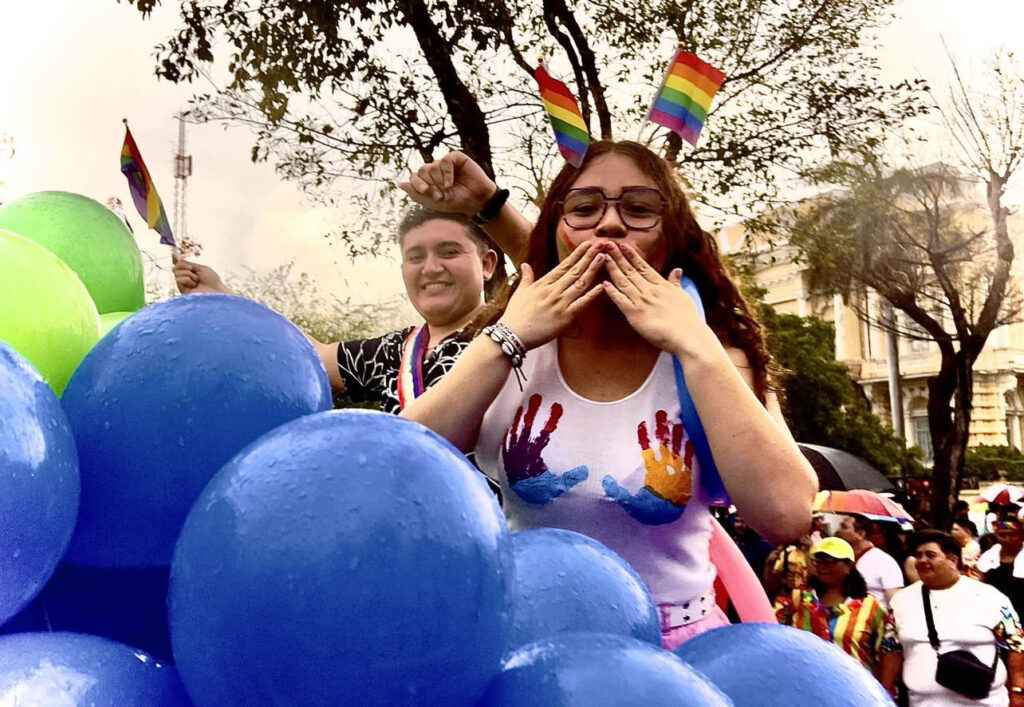
Modern Pride Celebrations
Today, Pride in Mexico is a multi-faceted event encompassing marches, rallies, cultural festivals, and educational programs. The marches have become massive celebrations of LGBTQ+ identity, drawing hundreds of thousands of participants from across the country and around the world.
In recent years, Pride in Mexico has also become increasingly intersectional, addressing issues such as racism, sexism, and transphobia. The marches have become a platform for amplifying the voices of marginalized groups and demanding greater inclusivity.


